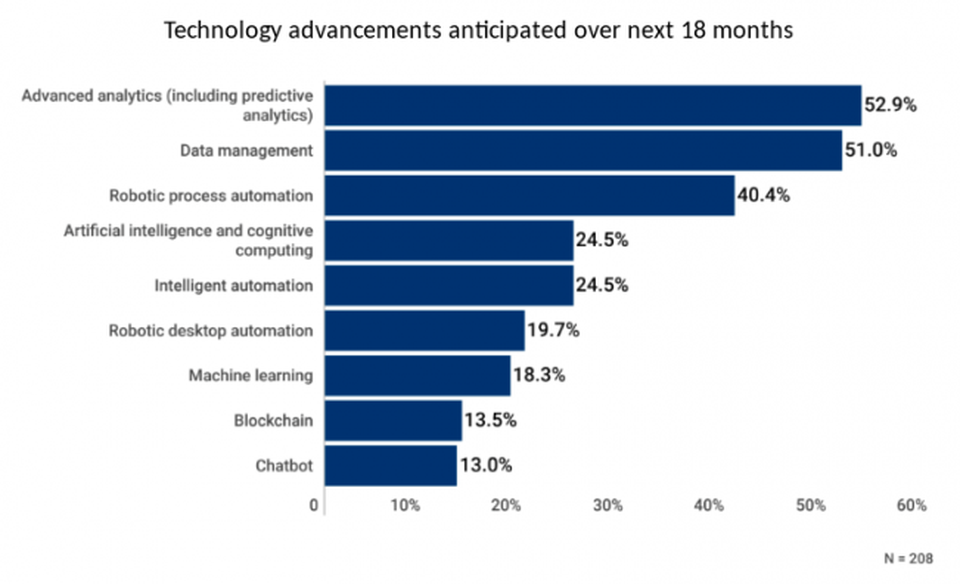
In a recent research project on priorities in process and performance management, APQC found that Robotic Process Automation RPA was a nucleus of 69% of digital strategies.
In another survey on investments in process automation, anticipated Robotic Process Automation projects were right behind analytics and data management, and almost twice as likely as near-term investments in AI or intelligent automation.
Three factors are driving Robotic Process Automation adoption:
Ease of implementation: It is relatively easy to begin with Robotic Process Automation; the tools are easy to implement and configure, and small-scale uses may not even require any training.
Successful pilots: The proven success of early Robotic Process Automation pilots is arousing interest in related tools. According to an APQC report, three-quarters of respondents said that their early projects had met or exceeded expectations.
One example is found at NASA, which launched four pilots in accounts payable and receivable, IT spending, and human resources; the space agency is now rolling all four out across the organisation, and implementing more RPA bots.
Pilot partnerships: APQC describes the formation of cross-functional internal alliances, to create and learn from pilot RPA projects, as a ‘major predictor’ of funded, successful RPA or machine learning projects.
@Forbes

Comments